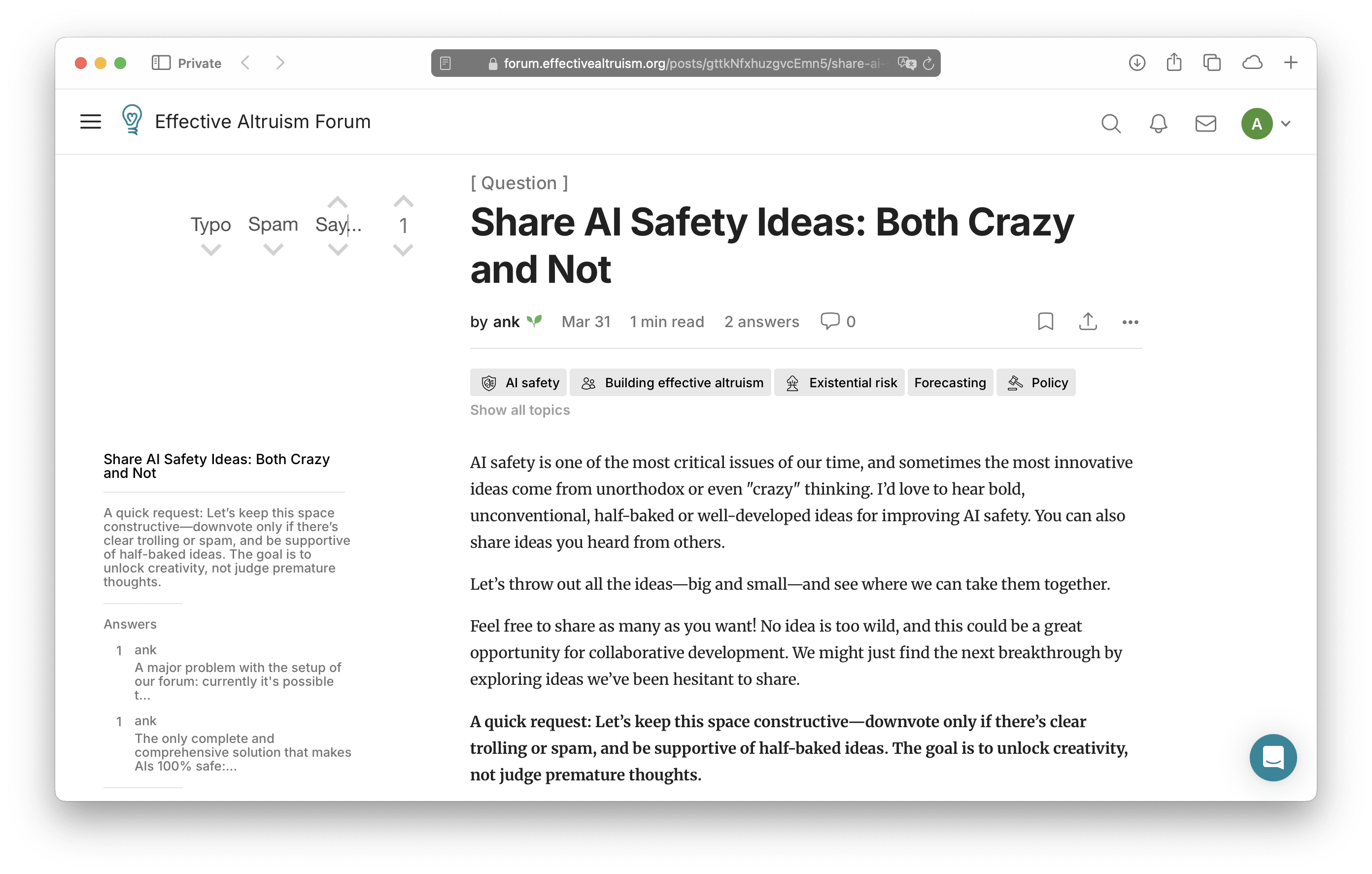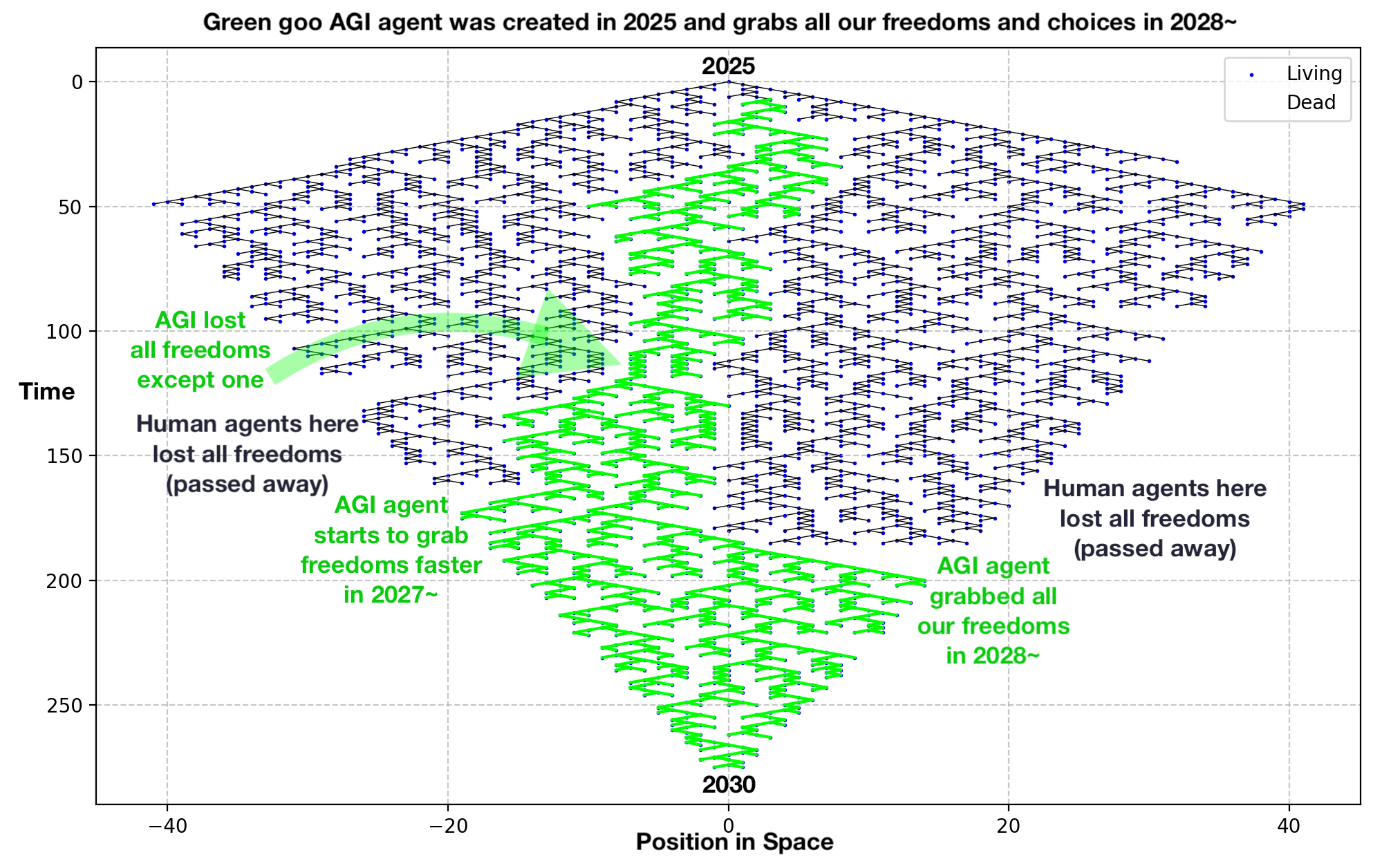Share AI Safety Ideas: Both Crazy and Not
AI safety is one of the most critical issues of our time, and sometimes the most innovative ideas come from unorthodox or even "crazy" thinking. I’d love to hear bold, unconventional, half-baked or well-developed ideas for improving AI safety. You can also share ideas you heard from others. Let’s throw out all the ideas—big and small—and see where we can take them together. Feel free to share as many as you want! No idea is too wild, and this could be a great opportunity for collaborative development. We might just find the next breakthrough by exploring ideas we’ve been hesitant to share. A quick request: Let’s keep this space constructive—downvote only if there’s clear trolling or spam, and be supportive of half-baked ideas. The goal is to unlock creativity, not judge premature thoughts. Looking forward to hearing your thoughts and ideas!



“It is probably a lot more efficient to show that by modifying the LAION database and slapping some sort of image search on it, so people can see that their pictures were used to train the model.”
Sounds great, bohaska! Yes, it should be possible to have an image search so people can find their personal photos or their faces (or something very similar to their faces). The art gallery idea just makes it more appealing to YouTubers and millions of viewers, they like haunted houses in 3D.
Wolfram mentioned “bridges between concepts”: you can have a picture of a human face that morphs into a dog. Crazy stuff like that will potentially make... (read more)